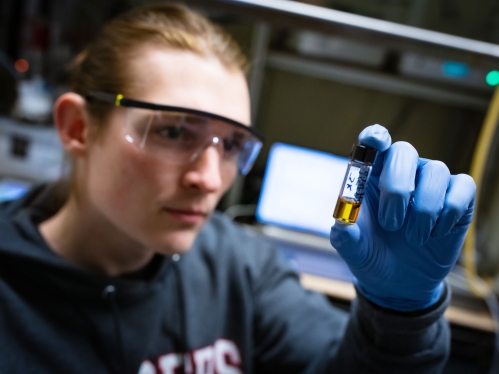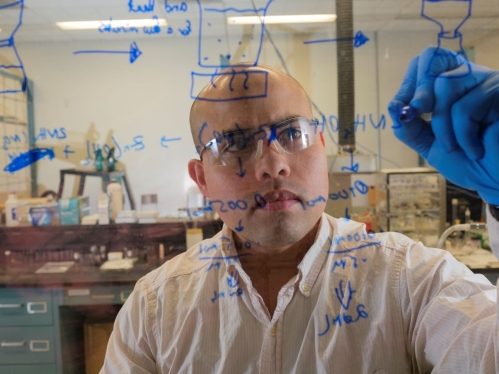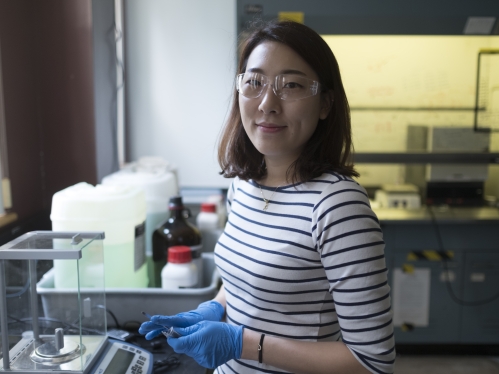Doctoral Degree
Curriculum Highlights
The doctoral degree is essential for those planning careers in research and/or academia. Dedicated to the development and education of future leaders in the dynamic, evolving field of chemical and biochemical engineering, our distinguished faculty provide students with the up-to-the-minute information and cutting-edge skills for career success. We offer:
Core Courses
- 501 Advanced Fluid Mechanics
- 502 Advanced Heat and Mass Transport
- 507 Analytical and Data-driven Approaches for Modeling and Simulation
- 511 Advanced Thermodynamics and Statistical Mechanics
- 514 Advanced Chemical Kinetics and Reaction Engineering
Electives
The program offers a wide range of topics from multiple areas in chemical and biochemical engineering.
Developmental Courses
- 605 Teaching in the Engineering Curriculum
- 601/602 Graduate Seminar
- 611/612 Practical training, including industrial internships
Options
The program also offers an option in pharmaceutical engineering that trains future leaders in next-generation pharmaceutical product design and manufacturing.

Doctoral Degree Requirements
72 credits, including 30 course credits and 24 research credits
- Oral preliminary exam
- Dissertation proposal and defense
- Teaching experience gained through two semesters as teaching fellows

Academics and Research
Cross-disciplinary researchers from major universities come together at centers such as the Center for Structured Organic Particulate Systems (C-SOPS), which is improving how pharmaceuticals and other products are manufactured, and the Catalyst Manufacturing Center.
Cutting-edge equipment includes Raman spectrometer with confocal microscope, gas-phase kinetic reactors, high-performance imaging systems, and thermogravimetric analyzer, along with advanced computational resources and software systems.
Research from our CBE programs results in publication in leading journals; patented technologies; and extensive funding from state, national, and international sources, as well as from industry partners.




Your Application